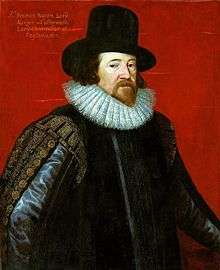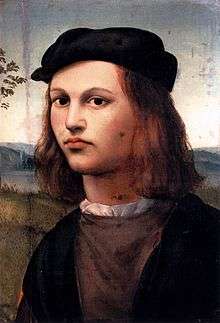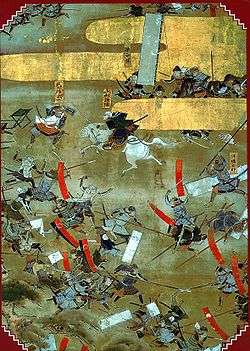1561
| Millennium: | 2nd millennium |
|---|---|
| Centuries: | 15th century · 16th century · 17th century |
| Decades: | 1530s · 1540s · 1550s · 1560s · 1570s · 1580s · 1590s |
| Years: | 1558 · 1559 · 1560 · 1561 · 1562 · 1563 · 1564 |
| 1561 by topic |
|---|
| Arts and science |
| Lists of leaders |
|
| Birth and death categories |
|
| Establishments and disestablishments categories |
|
| Works category |
|
| Gregorian calendar | 1561 MDLXI |
| Ab urbe condita | 2314 |
| Armenian calendar | 1010 ԹՎ ՌԺ |
| Assyrian calendar | 6311 |
| Bengali calendar | 968 |
| Berber calendar | 2511 |
| English Regnal year | 3 Eliz. 1 – 4 Eliz. 1 |
| Buddhist calendar | 2105 |
| Burmese calendar | 923 |
| Byzantine calendar | 7069–7070 |
| Chinese calendar | 庚申年 (Metal Monkey) 4257 or 4197 — to — 辛酉年 (Metal Rooster) 4258 or 4198 |
| Coptic calendar | 1277–1278 |
| Discordian calendar | 2727 |
| Ethiopian calendar | 1553–1554 |
| Hebrew calendar | 5321–5322 |
| Hindu calendars | |
| - Vikram Samvat | 1617–1618 |
| - Shaka Samvat | 1482–1483 |
| - Kali Yuga | 4661–4662 |
| Holocene calendar | 11561 |
| Igbo calendar | 561–562 |
| Iranian calendar | 939–940 |
| Islamic calendar | 968–969 |
| Japanese calendar | Eiroku 4 (永禄4年) |
| Javanese calendar | 1480–1481 |
| Julian calendar | 1561 MDLXI |
| Korean calendar | 3894 |
| Minguo calendar | 351 before ROC 民前351年 |
| Nanakshahi calendar | 93 |
| Thai solar calendar | 2103–2104 |
| Wikimedia Commons has media related to 1561. |
Year 1561 (MDLXI) was a common year starting on Wednesday (link will display the full calendar) of the Julian calendar.
Events
January–June
- January 31 – The Edict of Orleans suspends the persecution of the Huguenots in France.
- March 1 – Kingston Grammar School is founded in England.
- April 14 – The citizens of Nuremberg see what appears to be an aerial battle followed by the appearance of a large black triangular object and a large crash (with smoke) outside the city. A news notice (an early form of newspaper) is printed on (April 14) describing the event.[1]
- May 8 – Madrid is declared the capital of Spain by Philip II.
- June 4 – Old St Paul's Cathedral in the City of London is badly damaged by fire and the spire is destroyed after being struck by lightning. The spire is not rebuilt.
- June 6 – Sweden conquers Livonia (modern Estonia).
- June 25 – Francis Coxe, an English astrologer, is pilloried at Cheapside in London and makes a public confession of his involvement in "sinistral and divelysh artes".[2]
- June 29 – Erik XIV is crowned King of Sweden.
July–December
- July – Killing of the hated encomendero Pedro de Avendaño and two other Spaniards triggered the Second Great Rebellion of the Mapuche in the Arauco War.
- July 12 – Saint Basil's Cathedral in Moscow (started in 1534) is finished.
- August – English merchant Anthony Jenkinson arrives in Moscow on his second expedition to the Grand Duchy of Moscow.
- August 19 – Mary, Queen of Scots, is denied passage through England after returning from France. She arrives at Leith, Scotland on August 19.
- September – The Protestant reformer John Knox has a three-day debate in Maybole, Ayrshire, Scotland with Quintin Kennedy, commendator of Crossraguel Abbey, on transubstantiation. The result is inconclusive but Kennedy is fighting a losing battle against the Reformation, which had been confirmed by the Scottish government in 1560.
- October 18 – Fourth Battle of Kawanakajima: Takeda Shingen defeats Uesugi Kenshin in the climax of their ongoing conflicts.
Date unknown
- The first Calvinists settle in England after fleeing Flanders.
- Publication of the Anglo-Genevan metrical psalter including the "Old 100th", the version of the hymn "All People That on Earth Do Dwell" made from Psalm 100, attributed to the probably-Scottish clergyman and biblical translator William Kethe, exiled in Geneva.[3]
- Ruy López de Segura develops modern techniques of chess playing in Spain.
- First publication (anonymously in London) of William Baldwin's Beware the Cat (written early 1553), an early example of extended fiction (and specifically of horror fiction) in English. This edition appears to have been suppressed and no copies survive.[4]
- Between 1561 and 1670 3,229 alleged witches are executed in southwestern Germany, most by burning.
Births

Francis Bacon born on January 22

Fujiwara Seika born on February 8
- January 1 – Thomas Walsingham, English spymaster (d. 1630)
- January 6 – Thomas Fincke, Danish mathematician and physicist (d. 1656)
- January 22 – Sir Francis Bacon, English philosopher, scientist, and statesman (d. 1626)
- January 24 – Camillo Cortellini, Italian composer (d. 1630)
- February 1 – Henry Briggs, British mathematician (d. 1630)
- February 8 – Fujiwara Seika, Japanese philosopher (d. 1619)
- February 15 – Johannetta of Sayn-Wittgenstein, German noblewoman (d. 1622)
- February 25 – Edward Talbot, 8th Earl of Shrewsbury, English politician and Earl (d. 1617)
- March 9 – Archduke Wenceslaus of Austria, Archduke of Austria (d. 1578)
- March 29 – Santorio Santorio, Italian biologist (d. 1636)
- April 8
- Thiri Thudhamma Yaza of Martaban, Viceroy of Martaban (d. 1584)
- Dominicus Baudius, Dutch historian and poet (d. 1613)
- June – Samuel Harsnett, Archbishop of York (d. 1631)
- June 7 – Johann VII, Count of Nassau-Siegen (d. 1623)
- June 12 – Anna of Württemberg, German princess (d. 1616)
- June 13 – Anna Maria of Anhalt, German noblewoman (d. 1605)
- June 20 (bapt.) – Richard Whitbourne, English colonist of Newfoundland (d. 1635)
- June 24 – Matthias Hafenreffer, German Lutheran Theologian (d. 1619)
- June 26 – Erdmuthe of Brandenburg, Duchess of Pomerania-Stettin (d. 1623)
- July 2 – Christoph Grienberger, Austrian astronomer (d. 1636)
- July 11 – Luís de Góngora y Argote, Spanish poet (d. 1627)
- July 17 – Jacopo Corsi, Italian composer (d. 1602)
- July 24 – Maria of the Palatinate-Simmern, Duchess consort of Södermanland (1579-1589) (d. 1589)
- July 25 – Katō Kiyomasa, Daimyo (d. 1611)
- August 4 – John Harington, courtier, inventor and writer (d. 1612)
- August 14 – Christopher Heydon, English politician (d. 1623)
- August 20 – Jacopo Peri, Italian composer (d. 1633)
- August 24
- Thomas Howard, 1st Earl of Suffolk (d. 1626)
- Bartholomaeus Pitiscus, German astronomer and mathematician (d. 1613)
- August 25 – Philippe van Lansberge, Dutch astronomer (d. 1632)
- September 1 – Gervase Helwys, English murderer (d. 1615)
- September 3 – Yi Eokgi, Korean admiral (d. 1597)
- September 10 – Hernando Arias de Saavedra, Spanish colonial governor (d. 1634)
- September 21 – Edward Seymour, Viscount Beauchamp, son of the Edward Seymour (d. 1612)
- September 28 – Roland Lytton, English politician (d. 1615)
- September 29 – Adriaan van Roomen, Belgian mathematician (d. 1615)
- October 11 (bapt.) – Thomas Lake, English Secretary of State to King James I (d. 1630)
- October 15 – Richard Field, English cathedral dean (d. 1616)
- October 24 – Anthony Babington, English criminal (d. 1586)
- October 27 – Mary Sidney, English writer, patroness and translator (d. 1621)
- November 1 – Francesco Usper, Italian composer (d. 1641)
- November 16 – Andreas Angelus, pastor, teacher, chronicler of the Mark Brandenburg (d. 1598)
- December 1 – Sophie Hedwig of Brunswick-Wolfenbüttel, Duchess consort of Pomerania-Wolgast (1577-1592) (d. 1631)
- December 7 – Kikkawa Hiroie, Japanese politician (d. 1625)
- December 9 – Edwin Sandys, English founder of the colony of Virginia (d. 1629)
- December 16 – Amandus Polanus, German theologian of early Reformed orthodoxy (d. 1610)
- date unknown – Stephen Bachiler, non-conformist minister and pioneer settler of New England (d. 1656)
Deaths

Ridolfo Ghirlandaio died on June 6, 1561
- January 31
- Menno Simons, Anabaptist religious leader and Mennonite founder (b. 1496)
- Bairam Khan, Turkoman noble and poet (assassinated)
- February 26 – Jorge de Montemor, Spanish writer (b. 1520)
- March 25 – Conrad Lycosthenes, humanist and encyclopedist (b. 1518)
- March 28 – Bartholomeus V. Welser, German banker (b. 1484)
- May 16 – Jan Tarnowski, Polish noble (b. 1488)
- June 6 – Ridolfo Ghirlandaio, Italian painter (b. 1483)
- July 19 – Henry Lauder, Lord St Germains, Lord Advocate of Scotland
- September 1 – Edward Waldegrave, English politician and recusant
- October 27 – Lope de Aguirre, Basque rebel and conquistador (b. 1510)
- November 11 – Hans Tausen, Danish reformer (b. 1494)
- December 10 – Caspar Schwenckfeld, German theologian
- date unknown
- Marie Dentière, Genevan Protestant reformer and theologian (b. 1495)
- Claude Garamond, French publisher (b. 1480)
- Ijuin Tadaaki, Japanese noble (b. 1520)
- probable – Luis de Milán, Spanish composer (b. 1500)
References
- ↑ "Himmelserscheinung über Nürnberg" [Celestial phenomenon over Nuremberg]. NEBIS (in German). Zurich Library. April 14, 1561. (2 pages).
- ↑ BBC History Magazine vol 12 no 6 (June 2011), p13
- ↑ "All People That on Earth Do Dwell". The Cyber Hymnal. Retrieved 2012-06-05.
- ↑ Ringler, William A.; Flachmann, Michael, eds. (1988). "Preface". Beware the Cat. San Marino, CA: Huntington Library.
This article is issued from Wikipedia - version of the 11/17/2016. The text is available under the Creative Commons Attribution/Share Alike but additional terms may apply for the media files.


